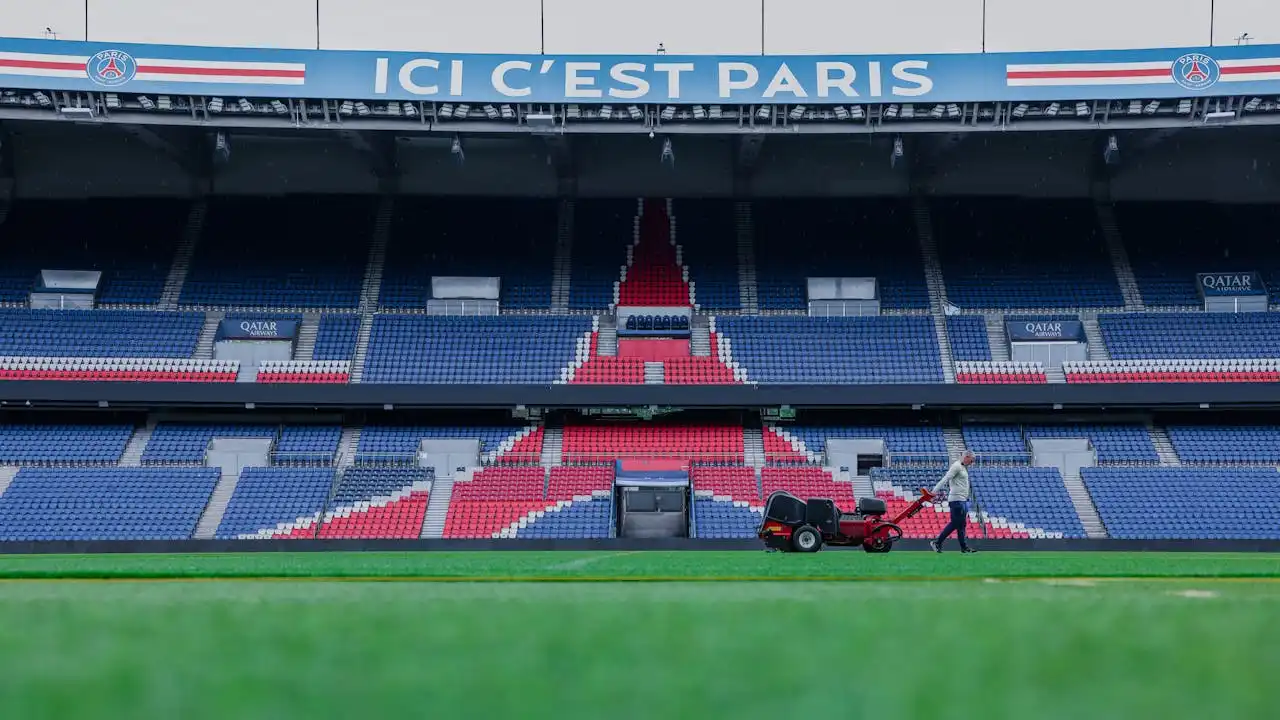Picture this: the Eiffel Tower gleaming, the Seine River flowing serenely, and the chic boulevards buzzing with life. Paris, the city of love, fashion, and art. For decades, however, when it came to football, the city's premier club, Paris Saint-Germain, was... well, let's just say they weren't exactly setting the world on fire. A solid local team, absolutely, with flashes of brilliance, but far from the global behemoth we know today. Their journey from a charming, if sometimes underachieving, Parisian outfit to an undisputed global football giant is a story of ambition, deep pockets, and a relentless pursuit of superstardom that's as captivating as it is controversial. Founded in 1970, PSG was born from a desire to create a major football club in the French capital. Prior to that, Paris, surprisingly, lagged behind other European capitals in terms of a dominant team. The club emerged from a merger between Paris FC and Stade Saint-Germain, starting life in the lower divisions. For years, they chugged along, enjoying periods of domestic success – winning the Ligue 1 title in the 1980s, and later securing the UEFA Cup Winners' Cup in 1996, which was a pretty big deal at the time. Names like David Ginola, George Weah, and later, the dazzling Ronaldinho graced their pitch, giving fans moments of pure magic. But despite these highlights, PSG remained, for the most part, a respectable French club with a loyal local following, not a brand recognized on every continent. They were a part of the city's fabric, but they weren't exporting French football culture on a global scale. Not yet, anyway. Then came 2011, and with it, a seismic shift that would forever alter the landscape of European football. Qatar Sports Investments (QSI) stepped into the picture, acquiring a majority stake in PSG, and suddenly, the sleepy giant wasn't just waking up – it was roaring. The initial reaction was a mix of excitement and skepticism. Could this really be the turning point? Would a massive influx of cash truly transform a club that had spent decades punching above its weight, but never quite reaching the absolute summit? Oh, boy, did it. The money talked, and it talked loudly. QSI’s ambition was clear: to make PSG the biggest club in the world, a true force to be reckoned with, both on the pitch and in the global marketplace. The transfer market became their playground. Gone were the days of penny-pinching; now, it was about making statements. Javier Pastore was an early, significant signing, but the real fireworks began with the arrival of Zlatan Ibrahimović and Thiago Silva in 2012. Zlatan wasn't just a player; he was a persona, radiating an aura of undeniable confidence that permeated the entire club. PSG wasn’t just buying talent; they were buying a new mindset, a swagger that said, "We're here, and we mean business." What followed was an unprecedented era of domestic dominance in France. Ligue 1 titles became almost a given, a regular procession of celebrations. But the real prize, the holy grail, was always the UEFA Champions League. This burning desire to conquer Europe led to even more jaw-dropping moves. In 2017, the club shattered transfer records, bringing in Neymar from Barcelona for a mind-boggling €222 million, followed swiftly by the acquisition of Kylian Mbappé, initially on loan then permanently, in a deal worth €180 million. It wasn't just about assembling a dream team; it was about assembling a collection of footballing deities, a veritable "Galactico" squad for the modern age. The sheer audacity of these transfers sent shockwaves across the footballing world, cementing PSG's status as a bona fide superpower. Beyond the pitch, PSG embraced its new identity as a global brand with gusto. They weren't just a football club; they were a lifestyle. Collaborations with high-fashion brands, partnerships with global icons like the Jordan brand (a groundbreaking move for a football club), and expansive social media campaigns ensured that the PSG badge was seen everywhere, from Paris to Shanghai, from New York to Doha. They understood that in the 21st century, football clubs are entertainment behemoths, and they played that game brilliantly. Their fan base exploded, particularly in Asia and North America, where the allure of their superstar players and sleek branding resonated deeply. Kids who’d never heard of Ligue 1 were suddenly sporting PSG jerseys. Of course, this meteoric rise hasn't been without its share of drama and scrutiny. The elusive Champions League trophy, despite all the spending and star power, has remained tantalizingly out of reach, often ending in heartbreaking fashion. It’s been a source of both immense pride for the progress and frustrating near-misses, a constant reminder that sometimes, even unlimited funds can't guarantee football's ultimate glory. There have been criticisms regarding Financial Fair Play regulations, the unique challenges of managing a squad full of global superstars, and the pressure that comes with such sky-high expectations. But through it all, PSG has pushed forward, unwavering in its vision. From a club formed from a dream in 1970 to a global phenomenon boasting some of the planet's most recognizable athletes, Paris Saint-Germain's transformation is nothing short of extraordinary. They’ve proven that with ambition, strategic investment, and a willingness to think outside the traditional football box, a club can transcend its local roots and become a true giant on the world stage. The journey is ongoing, the quest for that ultimate European crown continues, but one thing is for sure: PSG is no longer just a Parisian club. It's a global powerhouse, and its story is still being written.












